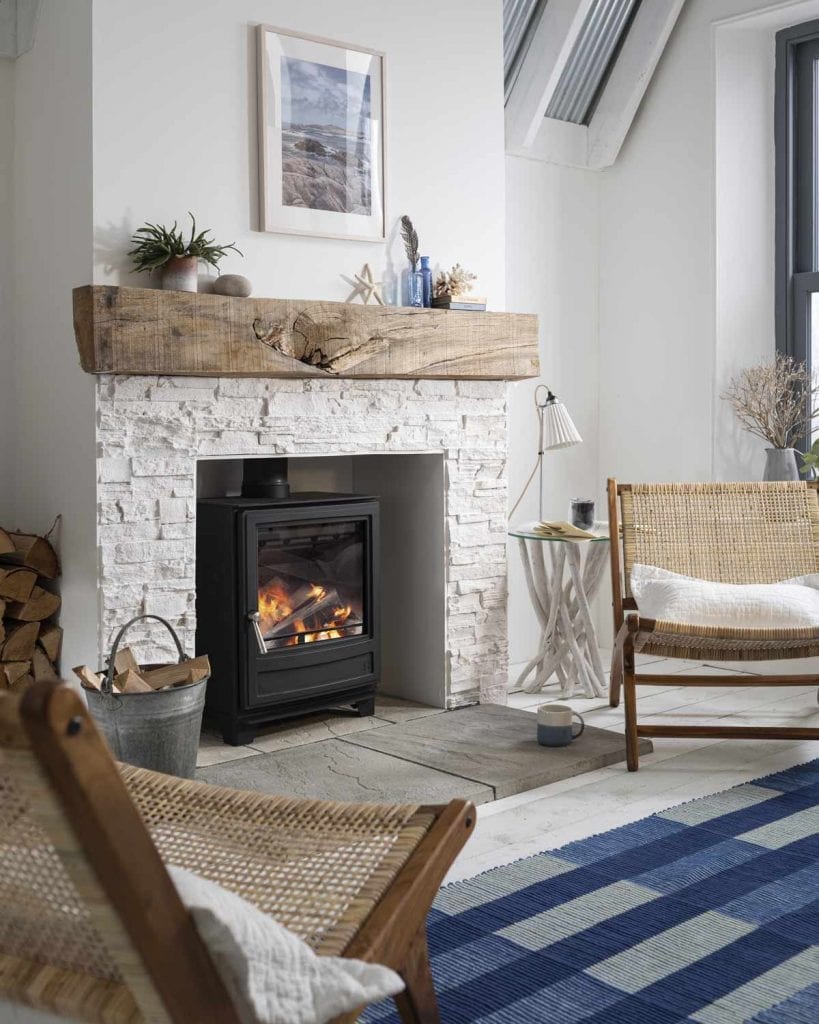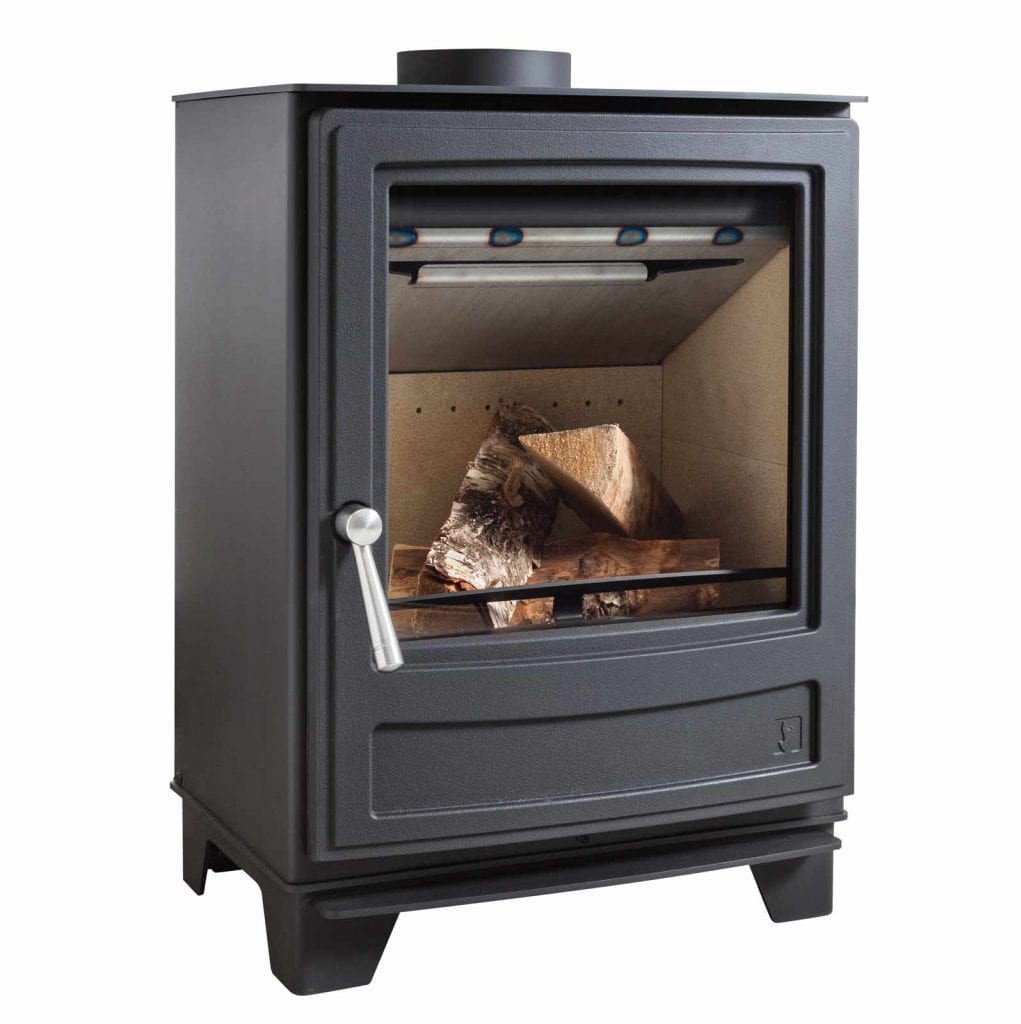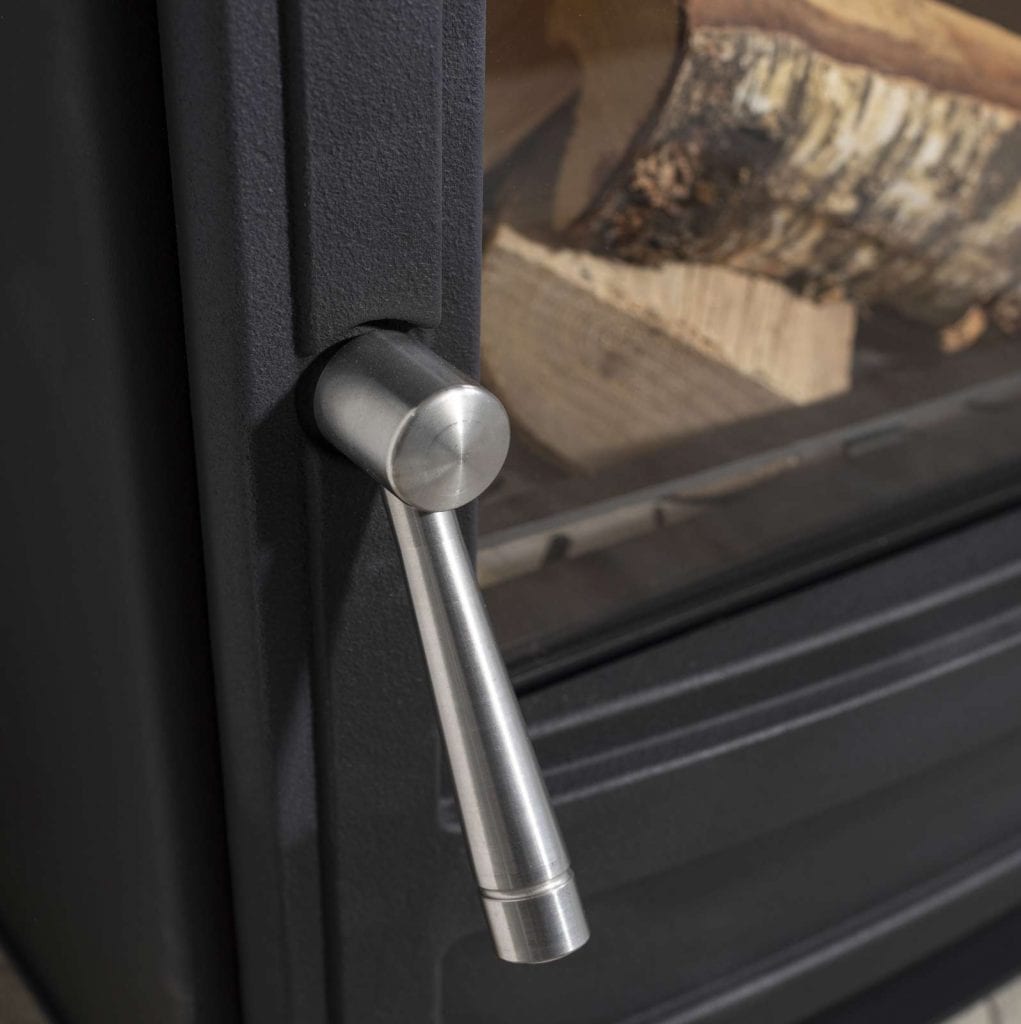Wood-burning stoves undoubtedly make for a fabulous focal point in any room. Imagine curling up on an autumn evening with a good book or the dog napping quietly on the fireside rug- that’s the stuff of dreams, right? Historically, wood-burning stoves were a staple in homes across the UK, used as the main method of heating the home. Skip forward to 2020 and the love of wood-burning stoves is still very much ablaze (sorry). According to The Green Age there are currently an estimated 1.5 million households in the UK with a wood burning stove, with around 200,000 more stoves being sold every year.
We caught up with Jon Butterworth, Director of Arada Stoves to discuss the launch of the Arada Ecoburn Wood-Burning Stove range and dig a little deeper into wether wood-burning stoves are in fact an environmentally friendly choice for your home.

Many believe that a wood-burning stove is a sustainable resource to heat their homes rather than relying on energy from the central grid, which is mostly generated by the burning of carbon-heavy fossil fuels. Is this an accurate assumption? Are wood-burning stoves really environmentally-friendly?
How Do You Assess The Environmental Impact Of A Wood-Burning Stove?

Jon: Burning wood produces particulate matter (PM) but the amount produced depends on how the wood is burnt. SIA Ecodesign Ready stoves can reduce particulate emissions by 90% compared to an open fire and 80% compared to an old stove. The New Ecoburn is such a stove. Both Defra and the Mayor of London are backing the installation of SIA Ecodesign Ready stoves to reduce emissions from wood burning.
What Is The Most Environmentally-Friendly Fuel Choice?
Wood-burning stoves are facing a fuel ban from 2021 following the new rules issued by the UK Government. As the country unites to tackle climate change and clean up air pollution, this new ban will impact anyone with a wood-burning stove or open fire in the UK.
“Burn dry wood, seasoned so the moisture content is below 18%”
– Jon Butterworth, Director of Arada Stoves
Why Is The Ban Happening?
Air quality here in the UK has reached a crisis point, with towns and cities regularly failing to meet international standards. This is clearly a serious problem as the number of deaths attributed to outdoor air pollution is in the tens of thousands annually.
The fuel ban being introduced by the UK Government plans to phase out the sale of house coal and wet wood. The plans have been put in place to tackle air pollution, in particular the tiny particle pollutants known as PM2.5. These tiny particle pollutants can penetrate deep into lungs and the blood and cause serious health problems.
A collaborative study by Greenpeace and The Guardian revealed that nearly 50,000 children across England and Wales are exposed to dangerous levels of air pollution. According to King’s College London, wood-burning stoves in London alone account for up to 31% of the city’s particulate pollution.
According to the Environment Department (Defra) wood-burning stoves and coal fires are the single largest source of PM2.5. It has been stated that they contribute as much as a whopping three times PM2.5 pollution as road transport!
Choosing A More Sustainable Wood-Burning Stove
As alarming as these statistics may be the trend for installing wood-burning stoves is set to continue, and as with any changes required to tackle climate change- innovation is paramount! For those who simply cannot imagine life without a wood-burning stove, the Arada Ecoburn 5 and Ecoburn 5 Widescreen offer a more sustainable option. Boasting impressive cleaner-burning credentials to heat the home, the Ecoburn 5 is “Ecodesign Ready”, meaning that it meets the new stringent regulations being brought into effect throughout Europe in 2022. Producing far fewer emissions than an open fire or old style stove, these Ecodesign Ready stoves ensure this new era of home heating is successful in improving our air quality, reducing carbon emissions and keeping our families and planet healthy.

Jon: Being a UK manufacturer we design, build and test all our products within the U.K. Our operation is based in Axminster, Devon and we are proud to be manufacturers rather than importers of products. Meeting regulations is simply a given.
If you’re looking at buying a wood-burning stove, Defra has a list of approved stoves on their website, including models that produce fewer polluting particulates than older stoves and roughly 90% less than an open fire. So if you’re going to buy one, do make sure it’s on the list first.
Making Your Existing Wood-Burning Stove Environmentally-Friendly
So, what if you already have a wood-burning stove and you don’t want to have to fork out for a new model? For existing stove owners, remember that fuels like wet wood and traditional house coal are highly polluting and are being phased out. You can make your stove more environmentally-friendly by installing an electrostatic filter, which can help to cut emissions of particles, only burn dry wood and regularly sweep the chimney.
So in conclusion, wood-burning stoves are not the most environmentally-friendly option, however if you cannot live without one- there are steps you can take to reduce your environmental impact. Buy a Defra approved stove, only burn dry wood and for existing stove owners- install an electrostatic filter.




